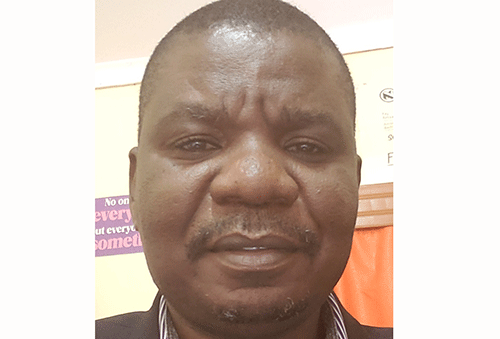Faustinus Shikukutu
The colonial education system instilled in Africans the notion that they were inferior, that their culture was primitive, and that they lacked the capacity to think independently.
This inferiority complex is still present in the minds of those who think less of themselves, as well as those who view others as inferior. Reading about and witnessing people’s inability to accomplish something is a powerful reminder of the extent to which false beliefs about one’s capabilities have been embedded in the collective unconscious.
Colonial education forced Africans to adhere to the culture and tradition of the colonisers, introducing a new educational system that left colonised individuals with a sense of identity and limited knowledge of their past, as well as a desire to distance themselves from their native heritage, which affected the individual’s self-esteem and confidence. Menticide was used to teach Africans that they did not possess the capacity to think and reason like the rest of the human race.
This education is responsible for the development of many people’s inferiority complexes, begging mentality, and the belief that they can only succeed in life with the help of others. Colonial education erased individuals’ faith in their names, their native languages, their surroundings, their unity, their responsibilities, and ultimately, their identity. Through this education, speaking a foreign language especially western fluently is viewed by many as being smart or superior, and those who eat foreign food such as rice as better off or well off.
The colonisation of many Africans, of whom Namibians form a part, sought to manipulate black minds to make them susceptible to the exploitation and manipulation of the colonisers. Miseducation continues to shape our curriculum and educational system, which intentionally omits, distorts, or trivialises the role of some Namibians in the history and culture of Namibia.
Colonial education disseminated a distorted and false narrative that Africans were slow-witted, less civilised, unintelligent, dangerous, and irresponsible, which, in reality, was imposed upon them by certain Europeans. Many of our current Namibian difficulties may be a result of colonialised minds, which cause us to feel shame and contempt for our cultural heritage, leading us to exclude it from our daily lives and accept foreign standards as being authentic and universal. As I’m writing this, many people’s minds are still colonised because they think they’re inferior to others or to those in superior positions.
We’ve seen African leaders who trust foreign ideas more than the ideas of natives, and leaders who overlook the competence of natives at the cost of non-natives. They even appoint non-natives to the most crucial and sensitive positions because they think none of the locals is competent enough.
It is essential that we have some measure of control over our lives on a personal level. However, those who are unaware or unappreciated of the role of external forces can be overly critical of themselves during times of failure or unresponsive to the experiences of others who are not as fortunate as they are.
The first Black African woman who won the Nobel Peace Prize, Wangari Mataai, observed that “Our people have been persuaded to believe that because they are poor, they lack not only capital but also knowledge and skills to address their challenges. Instead they are conditioned to believe that solutions to their problems must come from ‘outside’.” Many people who are struggling in life may not be at fault for their inability, but rather a result of the limited resources, opportunities, and facilities available to them.
Even though the root cause of the oppression is no longer within our midst, we continue to be oppressed by our own inferiority complexes. We believe that anything external will be superior to ‘Namibian’ simply due to the diversity of its sources. These are symptoms of self-persecution, the inability to rebut the fallacies around us because we are afraid of the dark corners of our own minds, and the fear that lurks in the depths of our consciousness. We are prisoners of our own thoughts, and this captivity leads us to a life that is less than what we were created for.
Decolonisation must begin with the mind; a mind that is unaware of itself cannot be decolonised. The challenge for Africans lies in the continued reliance on foreign ideas over their own. False narratives, such as the illusion of altruism, are taken for granted and internalised into the psyche of the nation. In the pursuit of a more equitable world, we subconsciously perceive our own world to be inferior. Decolonisation of the mind involves the integration of intellect, culture, psychology, and economic liberty.
Many individuals are failing due to an inferior complex that is rooted in the colonial educational system, rather than a lack of ability. For example, a form of dependency syndrome can be observed in some Namibian individuals who rely on the government to survive through drought relief, believing that they cannot do so without assistance from the government or their relatives.
In order to regain our self-respect, we must begin to decolonise our minds by recognising our own worth and using our minds to believe that we can liberate ourselves from dependency syndrome. Freeing our minds from the mental slavery of inferiority, recognising that we are just as valuable as anyone else, rejecting the inferiority-based narratives, and reconnecting with the Africa that is within us, are the preconditions for true liberation. Decolonised minds are necessary to break out of the trap of colonisation and instil change within the minds of colonised belief systems so that they can embrace self-determining, self-affirming, self-loving, and self-respect.
Colonised minds need to decolonise themselves by redefining themselves in new, positive terms against their adversaries. The fear of failure, the fear of risk, and the inferiority is a barrier to true liberation.


